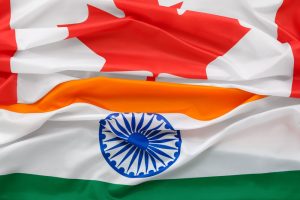In-short:
Here is a revised, value-rich guide for Indian families, students, and professionals dreaming to study in Canada in 2025—focused only on the essentials: Canadian student visa, international student requirements, housing, living expenses, and life tips, with no airfare content. Canada is known for its safe, peaceful, and stable environment, offering a high standard of living.
Key Takeaways for Indian Students Applying to Study in Canada: Understanding the Application Process
Canada’s student visa rules are stricter in 2025—careful paperwork, financial proof, and clear intentions are essential for approval of your Canada student visa.
Student hostels or shared apartments near campus are the most budget-friendly housing options for Indian students in Canada; living costs in Canada are manageable with smart choices and part-time work.
International students can often work part-time during their studies in Canada, which helps cover living costs and gain valuable experience.
Begin your application well in advance to avoid processing delays and long processing times for your study permit, increasing your chances of visa success.
Studying in Canada for Indian Students and Canadian Student Visa Overview: Required Documents and Online Application
Canada is a top destination for Indian students looking to study in Canada for quality education abroad. To study in Canada, Indian students need a Canadian student visa (study permit) by applying to a designated learning institution (DLI). After acceptance, they submit an online application with required documents like transcripts and proof of funds. Tuition fees vary, with scholarships available. Study options include degrees, diplomas, language, and vocational courses offered by different kinds of schools across the country.
Admission Requirements and Acceptance Letter from a Designated Learning Institution: Essential Required Documents
To apply for a study permit, Indian international students must meet admission requirements such as submitting academic transcripts, language test scores, and proof of funds. Once accepted, the designated learning institution provides an official acceptance letter with key details. Make sure this letter meets IRCC requirements before submitting your Canadian student visa application online or by mail. This letter is essential to proceed with your Canadian student visa application. You can visit the official IRCC page for detailed guidelines on the acceptance letter and other requirements.
Step 1: How to Apply for a Canada Student Visa for Indian Students
The student visa (study permit) for Canada now has new and strict rules for Indian applicants. Most foreign nationals will need a study permit if their course lasts longer than six months or a few months, depending on program length.
Get accepted by a Designated Learning Institution (DLI): First, choose a recognized Canadian college or university and get the “Letter of Acceptance”. Always check Citizenship Canada’s (IRCC) official website for the most up-to-date requirements.
Collect required documents: This includes your passport, admission letter, proof of funds (bank statements, fee receipts), medical check-up, a police clearance certificate to demonstrate your background and security for Canada, and a strong Statement of Purpose (SOP).
Proof of funds: From 2025, you must show you can pay for tuition fees, living costs in Canada (at least CAD 20,000 or about ₹12 lakh for the first year), and your return journey. The cost of studying in Canada includes tuition, living expenses, visa fees, and, if applicable, a visitor visa or electronic travel authorization for short stays before studies begin. Paying all required fees is essential.
Online application: Create an online account on the official Immigration, Refugees and Citizenship Canada’s (IRCC) website, complete the application form accurately, and upload all required documents.
Prove language proficiency: To apply for a study permit, you must prove your English or French language proficiency through standardized tests.
Fees and biometrics: Pay visa fees online, then book and attend a biometrics appointment for fingerprints and photo. You must pay the biometrics fee for each person included in the application.
Medical and interview: Undergo a medical exam if asked, and be ready for an interview about your study plans, finances, and your intent to return home after study.
Processing time: Normally 3–8 weeks; apply at least 3–4 months before classes start. Processing times can vary and processing delays may occur, so apply early.
Post-graduation options: After graduation, foreign nationals may be eligible to apply for permanent resident status and permanent residence through pathways such as Express Entry or Provincial Nominee Programs.
Student Direct Stream: The Student Direct Stream is a fast-track option for Indian students and other eligible countries to obtain a study permit more quickly.
Family members: Your common law partner and family members can sometimes accompany you and be included in your application.
Application number: After submission, you will receive an application number that allows you to track your visa application status online. Ensure to keep this number safe for future reference.
Tip: All steps must be completed before your application can be processed. Visa success depends on your paperwork being clear, honest, and complete.
Student Travel Deals: Saving on Your Journey to Canada
Indian students planning to study in Canada should explore student travel deals offered by various airlines and travel agencies. These deals provide discounted fares and special offers tailored for students, helping to reduce the cost of flights to Canada. Booking early and using student discounts can make your journey more affordable and less stressful. Keep an eye on seasonal promotions and student-specific offers to get the best prices on your travel.
Step 2: Housing and Living Costs in Canada for Indian Students
Student hostels/residences: On-campus housing is convenient and safe, with costs typically CAD 400–800 (₹25,000–50,000) per month depending on city and facilities.
Shared rental apartments: Team up with other Indian students to rent a flat. Sharing brings rent lower and helps with bills and food costs.
Homestay (living with a local family): A trusted and affordable option—meals often included, safe for newcomers, and perfect for cultural exposure.
Food and daily expenses: Cooking at home, group groceries, and Indian “tiffin” services save money. Budget about CAD 300–500 (₹18,000–₹30,000) monthly for food and other expenses.
Utilities, internet, mobile: Combine and split with flatmates; student plans are available for discounts.
Tuition costs: The average annual tuition fees for college students in Canada range from approximately CAD 7,000 to CAD 22,000. Students can use resources like Canada Find to research tuition fees, living expenses, and financial requirements for studying in Canada.
Step 3: Working During Study as an International Student with Canadian Student Visa and Work Permit Options
Part-time work rights: Student visa holders can legally work up to 20 hours/week during regular semesters and full-time during vacations—helpful for covering living costs and gaining experience.
Campus jobs and internships: Many colleges offer jobs on campus or help you find part-time work in the local community.
After graduation, students may be eligible to apply for a work permit, such as a post-graduation work permit. There are different kinds of work permits available, including open work permits and employer-specific work permits, depending on your eligibility and whether you have a job offer.
Step 4: Scholarships & Additional Support for Indian Students in Canada
Look for scholarships from Canadian universities, Indian organizations, and professional trusts. Every rupee counts—scholarships cover tuition fees, living expenses, or both.
Numerous scholarships and financial aid programs are available for international students in Canada.
Free support: College international offices, Indian student associations, and local volunteers help with adjusting, paperwork, and networking.
Health Insurance and Medical Requirements for Indian Students
Health insurance is a mandatory requirement for all international students studying in Canada. Key points to consider include:
Coverage options and requirements vary depending on the province where your designated learning institution is located.
Some provinces automatically provide health insurance to international students.
Other provinces require you to purchase private insurance before or upon arrival.
It’s essential to research the health insurance policies of your destination province.
Ensure you have adequate coverage for the entire duration of your studies.
Students planning to stay in Canada for more than six months may need to undergo a medical examination to demonstrate good health.
The need for a medical exam depends on your home country and the length of your program.
Check with your institution and the IRCC to determine if a medical exam is required for your application.
By securing the right health insurance and meeting all medical requirements, you can focus on your studies and enjoy a safe, healthy experience in Canada.
Final Words for Indian International Students Applying for Canadian Student Visa:
Canada is a top choice for Indian students in 2025 for its quality education, work opportunities, and multicultural welcome. Studying in Canada offers a high-quality, globally recognized education. But the journey begins with careful visa planning, well-chosen accommodation, and a realistic monthly budget. Prepare early, keep documents ready, and connect with fellow students for support. With smart planning and the right attitude, Indian students and families can build a bright, affordable future in Canada—step by step.
For the most accurate and updated information, always visit the official IRCC page and ensure your application is approved before making travel arrangements. Remember, having enough money and maintaining your student status throughout your stay is crucial. If you plan to extend your study permit or leave Canada temporarily during your studies, be sure to understand the rules and apply online for any necessary permits or authorizations well in advance.
Bonus: Student Travel Deals and Cheap Flights to Canada from India
Indian students planning to study in Canada should also consider booking early to find the best flight deals for students. Many airlines offer student travel deals and discounts, making it more affordable to fly to Canada. Keep an eye on airline promotions for cheap flights to Canada from India, especially during peak student travel seasons. Booking flights early and using student discounts can significantly reduce your travel costs, helping you manage the overall cost of studying in Canada.
Additionally, for students planning their return journey or visits home, exploring Canada to India flights with student discounts can also help save on travel expenses.
Frequently Asked Questions (FAQs) for Indian Students Studying in Canada
How long does it take to process a Canadian student visa application?
Processing usually takes 3 to 8 weeks; apply 3 to 4 months before your course starts.
Can I work while studying in Canada on a student visa?
Yes, you can work up to 20 hours per week during semesters and full-time during breaks.
What documents are required to apply for a Canadian study permit?
You need a valid passport, acceptance letter, proof of funds, police certificate, and language test scores.
Can my family accompany me to Canada during my studies?
Yes, your partner and dependents can apply for visas to stay with you.
What is the Student Direct Stream (SDS)?
SDS is a fast-track visa processing program that speeds up study permit approvals.





